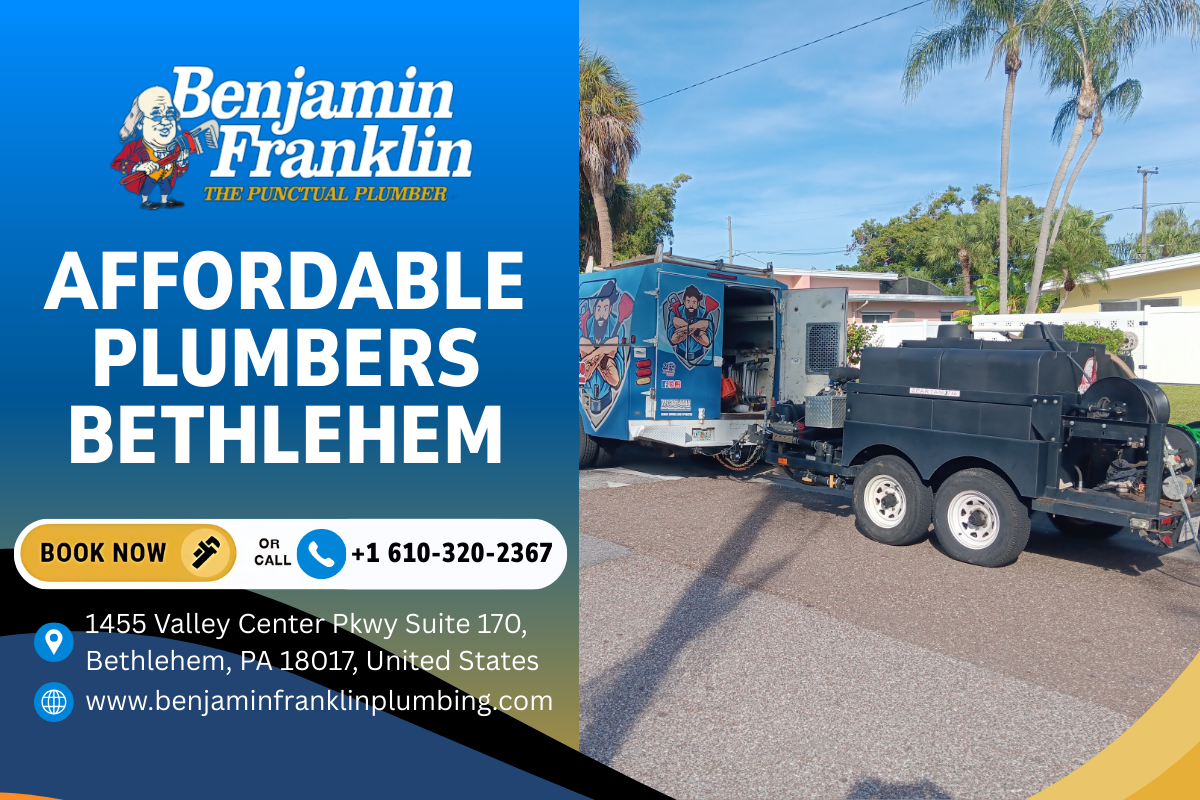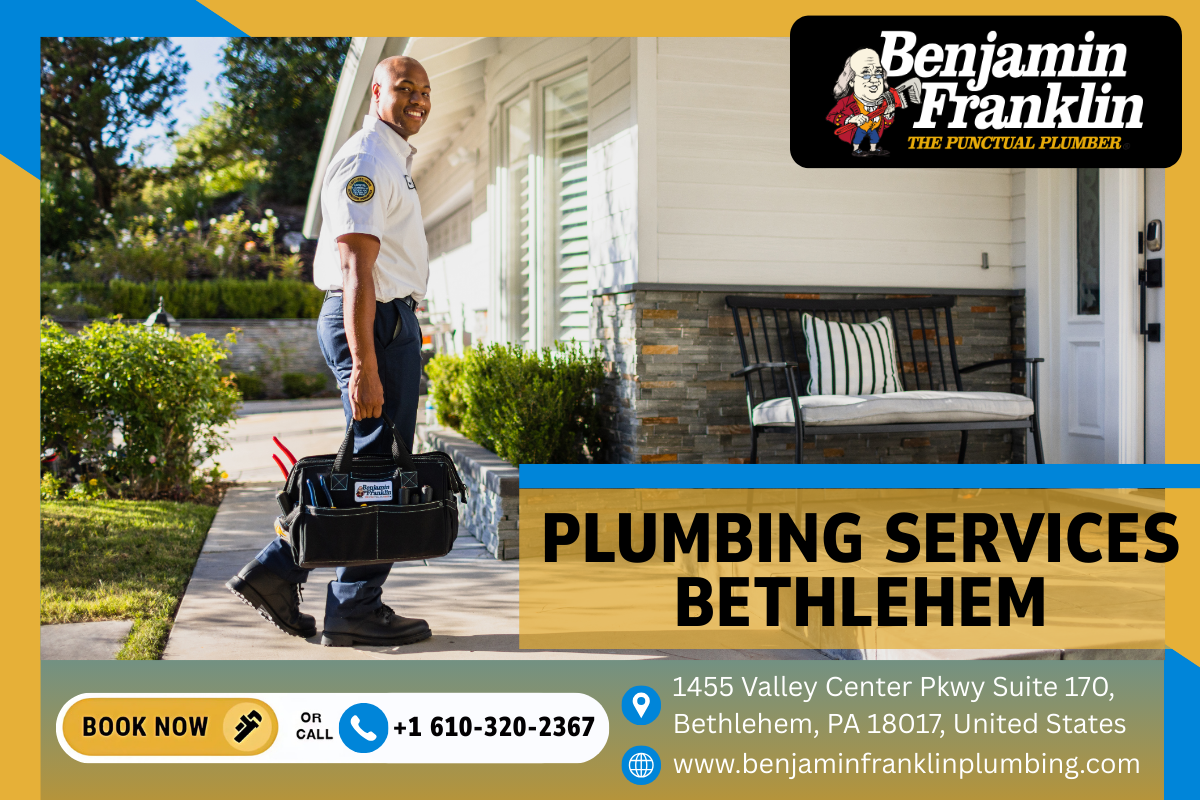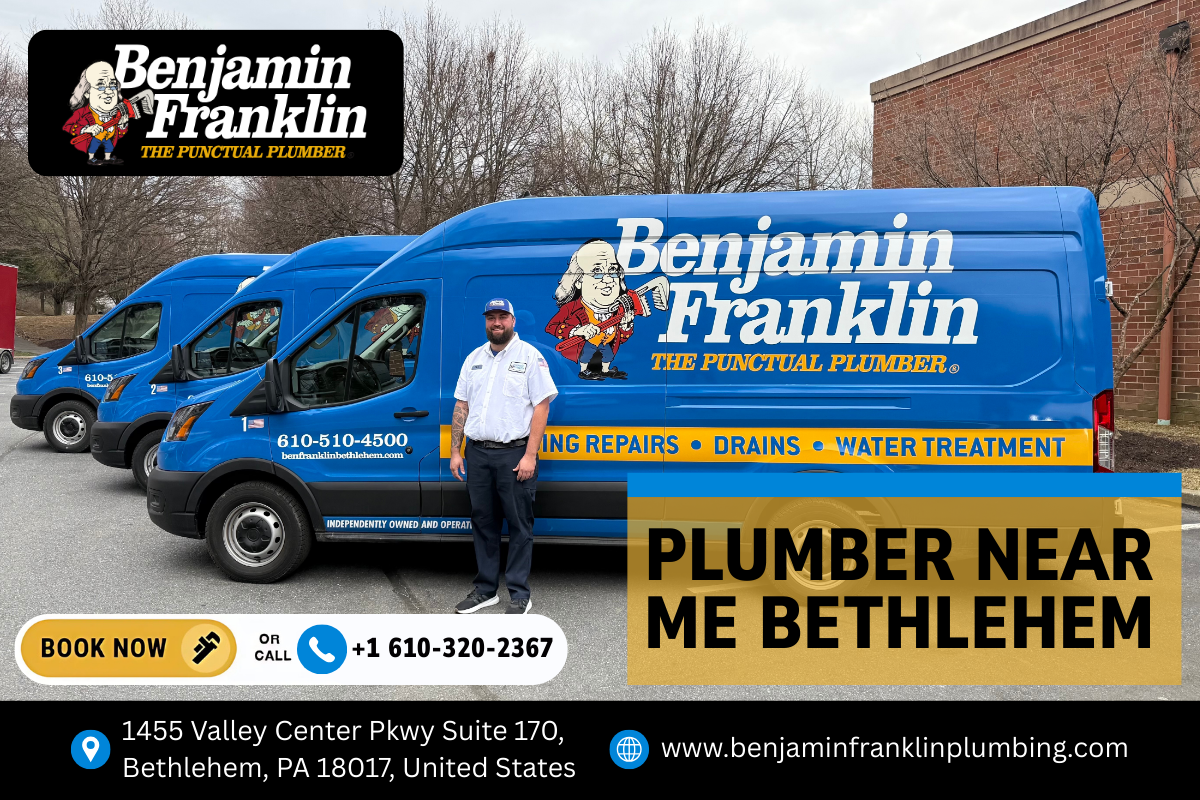


Bethlehem sits at the confluence of old homes, new builds, and a community that cares about its rivers. When I first started working with homeowners here, I noticed a pattern: folks want reliable plumbing that doesn’t waste water, and they want it done by people who know these streets, these rowhomes, these pressure quirks. The good news is that smart, eco-conscious upgrades now cost less than a leaky month’s water bill used to, and they pay for themselves faster than most expect. The trick is choosing the right improvements for your fixtures, your family’s habits, and Bethlehem’s water pressure realities — and hiring licensed plumbers who have actually worked on these systems, not just read a spec sheet.
Below, I’ll walk you through the upgrades that consistently move the needle, share what local plumbers watch for in Bethlehem’s housing stock, and explain the trade-offs that come with each choice. You’ll see where “affordable plumbers” provide huge value, and where you want a seasoned hand with a license and a pressure gauge. If you came here after typing “plumber near me Bethlehem,” you’re in the right place to figure out what to ask for and what your budget can accomplish without waste.
Why water-saving upgrades matter here
Bethlehem draws on regional water supplies with seasonal variability. Summers can stretch lawns and pipes, and older neighborhoods combine high static pressure with fixtures that were never designed for conservation. Many homes I visit still carry 3.5-gallon-per-flush toilets or showerheads from another era. When a 1960s valve meets a 2020s low-flow fixture, you either get a silky, efficient stream — or a trickle that sends a call to local plumbers by the weekend.
Eco-conscious upgrades aren’t just about trimming your utility bill or catching a rebate. They reduce stress on your water heater, keep your sewer line happier, and lower the risk of pinhole leaks in tired copper. In Bethlehem, small fixes ripple outward: less water in means less water heated, less water treated, and fewer surprises during freeze-thaw cycles.
Start with a straightforward audit
A practical audit doesn’t need clipboards and jargon. It does need eyes for the telltale signs: aerators caked with mineral scale, angle stops that weep, a toilet that re-fills when no one’s used it, a meter that spins while the house is quiet. Licensed plumbers Bethlehem homeowners trust usually begin outside at the meter and pressure regulator, then move fixture to fixture. They’ll match flow rates to actual performance, not just what the stamped number claims.
Bethlehem’s municipal pressure typically ranges from the mid-60s to the upper-80s psi, depending on your block and elevation. That matters. A showerhead rated 1.75 gallons per minute at 60 psi may push closer to 2.1 at 80 psi unless it uses pressure-compensating technology. A competent plumbing service will measure and adjust your pressure-reducing valve so your new eco features work as promised and don’t turn a morning shower into guesswork.
Toilets: the heavyweight water savers
If you change one thing, make it the toilets. Older models can use 3.0 to 5.0 gallons per flush; modern high-efficiency toilets (HET) use 1.28 gpf, with ultra-high-efficiency toilets (UHET) at 0.8 to 1.0 gpf. Replacing two 3.5 gpf toilets in a household of four can save 7,000 to 10,000 gallons a year. That’s not marketing fluff — it’s a number I’ve confirmed in Bethlehem by comparing quarterly bills before and after.
Not all 1.28 gpf toilets perform equally. Gravity-fed designs with well-engineered trapways and glazing can clear just as reliably as old 1.6s, while pressure-assist models add punch but bring more noise and a slightly higher part replacement cost. For rowhomes with thin walls, I often steer folks toward higher-quality gravity options that won’t announce a flush to the whole block.
A side note: flappers matter. If you’re not ready to replace the bowl and tank, a high-quality, adjustable flapper can cut ghost flushing. Dye tabs or a few drops of food coloring in the tank can detect leaks in minutes. Affordable plumbers Bethlehem residents hire can swap a flapper and clean a fill valve in under an hour — cheap insurance compared to a season of unnoticed seepage.
Shower performance without waste
People complain when a new showerhead turns a morning routine into a chore. That happens when the model can’t handle higher static pressure, or when the house has a partially clogged mixing valve that starves it of flow. Good local plumbers diagnose both ends before recommending hardware.
Look for pressure-compensating low-flow heads in the 1.5 to 1.75 gpm range. These use flexible discs or valves that adjust to maintain the feel of a 2+ gpm spray even as house pressure fluctuates. If you prefer a rain-style head, pair it with a thermostatic mixing valve. Thermostatic valves hold temperature steady with less waste during seasonal changes or when someone flushes elsewhere. In Bethlehem’s older Colonial rehabs, I’ve installed thermostatic controls that dropped the average “warm-up and wait” by 20 to 30 seconds — less water down the drain, less frustration before coffee.
If your home has a long run between water heater and bath, consider a hot-water recirculation solution. Timer-based and demand-based pumps can recapture wasted wait-time water. Demand systems trigger with a button or sensor and shut off once hot water reaches the fixture, avoiding continuous energy use. They pair well with tankless heaters, but even with standard tanks, I’ve seen 2,000 to 4,000 gallons saved yearly in households that shower back-to-back.
Aerators and faucets: small parts, real savings
The fastest, cheapest upgrade I recommend is faucet aerators. Kitchens can drop from 2.2 gpm to 1.5 without sacrificing rinse power if you choose a swivel or pressure-compensating model. Bathroom lavatories work well at 0.5 to 1.0 gpm. You feel the difference most when scraping oatmeal off a pot or rinsing leafy greens. That’s where you want a kitchen aerator with a boost mode that briefly increases flow when needed.
Mineral content in Bethlehem can crust aerators in a few months in certain parts of town. Keep a small jar of vinegar under the sink; soak the screen overnight twice a year. A licensed plumber can set you up with quick-change aerators, and if a faucet is old enough to corrode at the threads, they’ll know whether a new cartridge or a replacement fixture makes more sense.
Behind-the-scenes heroes: regulators, valves, and meters
Water waste rarely comes from one big, dramatic leak. It trickles out in places people ignore: shutoff valves that never quite close, pressure that’s 20 psi higher than needed, a PRV with a torn diaphragm. For Bethlehem plumbers who know the local grid, a pressure check is step one. A PRV set around 55 to 60 psi protects your fixtures, quiets pipes, and puts your low-flow hardware into its sweet spot. If your home has irrigation, your licensed plumbers will tune that zone separately so sprinklers have adequate throw without atomizing into mist.
Smart leak monitors have matured. Inline devices measure flow patterns and can shut off water when they detect an anomaly; clamp-on ultrasonic sensors offer non-invasive monitoring and can be moved if you remodel. I have clients who’ve caught pinhole slab leaks within hours rather than months, saving both water and subfloor. Not every home needs a whole-house system — condos and townhomes with HOA-managed exteriors, for example, may benefit more from fixture-level shutoffs and mechanical leak sensors under sinks and water heaters.
Water heaters and efficiency trade-offs
A water heater dictates how pleasant your conservation journey feels. Tankless models pair naturally with low-flow fixtures, since they don’t waste heat on storage and recover instantly. But they also have minimum flow requirements to trigger heating. That’s where good plumbing services Bethlehem residents call can calibrate: choose a low-flow showerhead that still meets the heater’s activation threshold, or adjust the heater’s minimum. Mixing valves on tank heaters can be set to deliver lower, safer outlet temperatures while keeping the tank hotter for kill rates and storage efficiency.
If your heater is over a decade old, ask a licensed plumber to evaluate sediment buildup and anode condition. Sediment insulates water from heat, forcing longer burner or element cycles. A thorough flush and a fresh anode rod can restore performance and cut energy use. It isn’t glamorous work, but it turns a 70 percent efficient system back toward its original spec and complements water-saving fixtures by tightening the whole loop.
Outdoor considerations: irrigation and hose bibbs
Bethlehem lawns and gardens drink most heavily between May and September. A simple pressure reading at the hose bibb often reveals why sprinklers waste water. Rotary nozzles can deliver even coverage at lower flow, and matched precipitation heads prevent oversoaked zones. A rain sensor wired to your controller costs little and pays back the first time a summer thunderstorm rolls in after your schedule ran.
Drip irrigation shines for garden beds and foundation plantings. It applies water at the roots with minimal evaporation, and it scales to modest yards easily. Just remember that backflow prevention is not optional. This is where licensed plumbers Bethlehem trusts earn their keep, ensuring your irrigation tap includes the correct backflow device, which protects your household water from contamination.
For hose bibbs, freeze-proof sillcocks prevent wintertime surprises. Pair them with vacuum breakers, and you eliminate the risk of siphoning from a hose lying in a fertilizer bucket. These aren’t luxury add-ons; they’re standard in a well-protected system.
Retrofits for Bethlehem’s older homes
Many of the homes off Linden and around the Northside carry stories in their walls. They also carry galvanized branches, mixed copper-to-PEX transitions, and traps hidden behind plaster. Local plumbers who spend time in these structures learn to listen for water hammer in aged risers and to test galvanic action at dissimilar metal joints.
Eco upgrades in older homes follow a measured order. Start with the main shutoff and PRV so you have control and stable pressure. Replace faucets and showerheads with pressure-compensating models that forgive older supply lines. If toilets are original, prioritize those next. Only after your fixtures are behaving do you chase hidden losses: valve replacements, repipes, or branch reconfigurations. I’ve seen homeowners spend on smart monitors first, then still lose thousands of gallons to a tired toilet flapper. Sequence matters.
What “affordable” really means
Affordable plumbers are not the cheapest pair of hands you can find online. The right team balances labor rate with minimal callbacks, uses parts that last, and respects your schedule. They also tell you when not to buy something. A favorite example: a client wanted a whole-house recirculation pump to cut hot-water wait in a small ranch. The run from heater to bath was 18 feet. We swapped a kinked flex connector, insulated the line, and cut the wait from 35 seconds to 8. Cost: a fraction of the pump, and no idle heat loss.
When you search for “plumber near me Bethlehem,” look for indicators beyond star ratings. Licensing and insurance should be obvious. Ask how they size toilets for low-slope drains, which brands they trust for pressure-compensating heads, and how they set PRVs relative to fixture spec. The answers tell you whether you’re getting a salesperson or a craftsperson.
Rebates and code notes
Rebates for WaterSense fixtures come and go. Some Pennsylvania utilities or regional programs offer credits on HET toilets, efficient showerheads, or leak monitoring. Local plumbers stay current because they hear it from suppliers and inspectors. Even when rebates aren’t available, compliance with WaterSense and ASME standards keeps your upgrades aligned with proven performance rather than marketing.
On code, two points frequently missed during eco upgrades: anti-scald protection and backflow. Any significant shower work should include pressure-balanced or thermostatic valves. Any irrigation tie-in needs the correct backflow device based on risk. Licensed plumbers Bethlehem homeowners hire will provide paperwork the inspector actually accepts, avoiding rework or failed inspections.
The human factor: habits beat hardware
I tell clients that fixtures set the stage, but habits make the show. A showerhead that saves half a gallon per minute matters less if the shower grows two minutes longer. Dishwashing technique, laundry timing, and the way kids play with hose sprayers dwarf any single upgrade. I’ve watched families cut water use 20 percent by simply fixing scheduling and replacing https://holdentapa242.trexgame.net/how-often-should-you-schedule-professional-plumbing-services-1 three aerators. They felt zero sacrifice, just smoother routines.
Set your water heater to a practical temperature, fix drips quickly, and don’t ignore the toilet that whispers at night. Put a small bucket under a suspect angle stop for a week and check it — objective data beats hunches. If you want to lean on technology, select a simple whole-house monitor with clear alerts, not one that spams your phone for every toilet refill.
What a typical upgrade path looks like
Homeowners often ask for a roadmap rather than a menu. Here’s a clean, value-first sequence I use for many Bethlehem homes, tuned to minimize disruption and maximize savings quickly.
- Verify and adjust pressure at the PRV, replace if needed, and confirm main shutoff works. Replace toilet flappers or install HET/UHET toilets where appropriate. Swap showerheads for pressure-compensating 1.5–1.75 gpm models and service mixing valves. Install faucet aerators (kitchen 1.5 gpm with boost, bath 0.5–1.0 gpm), and fix any weeping angle stops. Address hot-water delivery with insulation and, if justified by distance and usage, a demand recirculation system.
That short list covers the highest return items in the order that prevents surprises. It’s also where affordable plumbers Bethlehem residents call can deliver outsized results in a day’s work.
Real-world numbers from Bethlehem jobs
A couple of examples give a sense of scale. A three-bath Colonial in North Bethlehem with two teenagers replaced three 3.5 gpf toilets with 1.28s, installed two 1.75 gpm showerheads, and added kitchen and bath aerators. The meter dropped roughly 2,000 to 2,800 gallons per month depending on sports season and laundry. The family reported no comfort issues, and the annual savings covered the hardware costs in about 14 months.
A Southside duplex with chronic high water bills had a silent-leak toilet upstairs and a PRV stuck at 85 psi. The flapper was dished and soft, the fill valve running intermittently. We replaced the PRV, swapped the flapper, and tuned two faucets with new aerators. Water use fell 30 percent immediately, and the banging in the laundry stopped. No expensive tech, just basics done right.
Materials that go the distance
Sustainable, in my book, also means durable. Quarter-turn ball valves outlast multi-turn stops and make future maintenance painless. PEX with proper expansion fittings performs well in Bethlehem’s seasonal swings and plays nicely with retrofits behind plaster. For fixtures, metal bodies with ceramic cartridges beat plastic internals every time. Cheaper parts invite callbacks and leaks that erase your savings, so when Bethlehem plumbers recommend a brand you haven’t seen at a big-box aisle, it’s not snobbery; it’s experience with performance and support.
When to call licensed plumbers versus DIY
Some upgrades invite DIY if you enjoy a Saturday project: aerators, dye testing toilets, insulating hot-water lines you can reach. But anything that touches pressure, gas, or open walls calls for licensed plumbers. Water heater settings and recirculation systems need knowledge of scald thresholds and combustion safety. PRV adjustments seem simple until a brittle union snaps. And in Bethlehem’s older homes, a stuck shutoff can turn a 20-minute fix into a flood without the right prep.
If you prefer to research first, call around and ask for a quick pressure check and fixture assessment. Most plumbing services Bethlehem residents use will quote a modest diagnostic fee that’s worth every dollar. You’ll walk away with a prioritized plan and a sense of the crew’s competence.
Selecting the right local partner
Bethlehem has no shortage of local plumbers, from small two-truck outfits to larger teams that cover the region. Size isn’t the deciding factor. Look for a shop that documents parts and model numbers on their invoices, honors manufacturer warranties, and explains why they prefer a 1.75 gpm head in your home rather than a 1.25. If you hear absolutes — “all low-flow heads are bad” or “tankless is always better” — keep looking. The best licensed plumbers tailor solutions to the home in front of them, not a script.
Search terms like “plumbing services Bethlehem” and “affordable plumbers Bethlehem” pull a wide net. Narrow it by asking whether they handle permit pulls for toilet replacements when required, how they approach backflow for irrigation, and whether they pressure-compensate recommendations based on your measured psi. Those answers reveal whether you’re hiring a water-saving partner or just a fixture installer.
The Bethlehem edge: small changes, big impact
Eco-conscious upgrades aren’t a lifestyle statement; they’re a practical alignment of your home’s systems. In Bethlehem, with its mix of lively neighborhoods and historic charm, the homes that feel best to live in also tend to be the ones that waste the least. Start with pressure, fix the fixtures that waste the most, then polish with valves and monitoring. Give your plumber the room to recommend sequence over novelty.
If you’ve been delaying because you feared compromised comfort or high costs, try a one-day tune-up with a trusted local team. Replace two toilets, two showerheads, and four aerators, and ask them to set your PRV properly. That modest scope can transform your daily routine and your bill. And if you don’t know who to call, a simple “plumbers Bethlehem” search, paired with the questions above, will surface licensed plumbers who respect both your budget and the Lehigh River that carries what we don’t use.